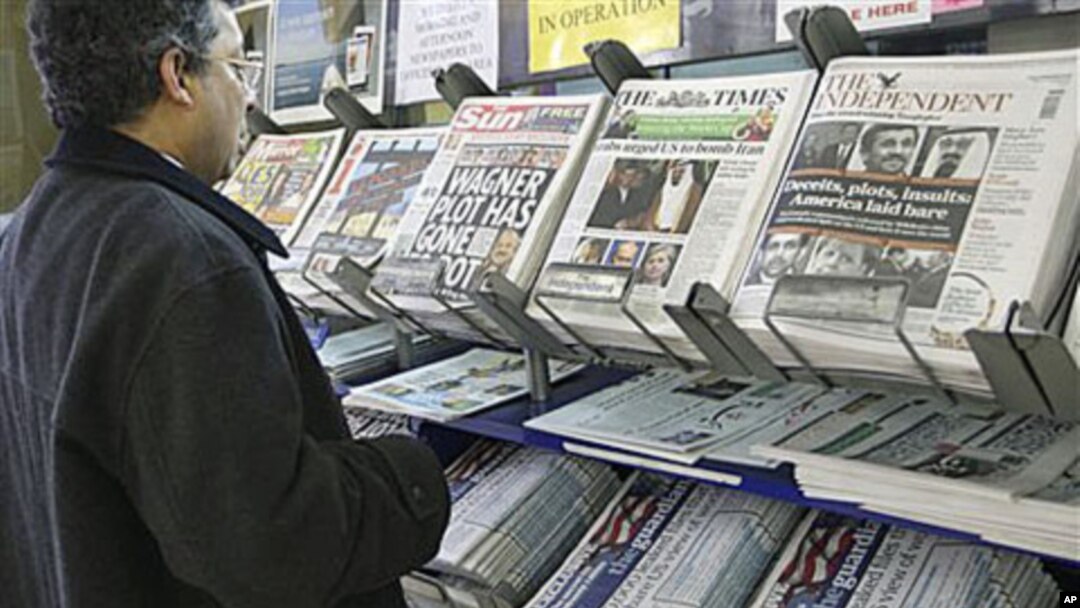The U.S. Justice Department is reportedly considering whether to file espionage charges against the WikiLeaks Web site and its founder Julian Assange. The case has raised broad legal questions about how the government will protect the freedom of information and an open Internet, while also protecting privacy and national security.
It has been a big year for Internet freedom in the United States. In January, Secretary of State Hillary Clinton made freedom of expression on the Web a top foreign policy concern.
"This freedom is no longer defined solely by whether citizens can go into the town square and criticize their government without fear of retribution," Clinton said. "Blogs, emails, social networks, and text messages have opened up new forums for exchanging ideas, and created new targets for censorship."
Pushing free speech to the legal edge
Nearly a year later, that freedom is being tested in the United States by WikiLeaks. After the group posted private U.S. diplomatic documents on its Web site, U.S. government lawyers banned civil servants from viewing the cables. They say federal workers must protect classified information, even if it is publicly available on the Internet. Legally, classified information remains classified until the government says otherwise.
Abbe David Lowell, a prominent Washington lawyer who has worked on high-profile espionage cases, says the whole Wikileaks leak presents a real conundrum.
"Of course the problem with the government's position is that while they may take it, it is still classified, [but] it is classified in name only because like the toothpaste, says Lowell. "It's out of the tube and it's hard to put back in."
Lowell says it is not technically a crime for federal workers to access the WikiLeaks Web site, but adds they could face trouble if they break their employment contract by viewing classified material without permission.
"The crime, for example under the Espionage Act, is for somebody without authorization to disclose that information forward, were somebody with authorization to disclose it forward to somebody without authorization, says Lowell. "So it's not just the reading, it's the disclosure and the dissemination."
Published classified material vexes U.S. government
The ban on viewing what is now public information is complicating the work of some federal agencies, such as the Congressional Research Service, which is considered the "brain" of the U.S. Congress for the policy and legal analysis it provides lawmakers.
Without access to the leaked diplomatic cables, Steven Aftergood of the Federation of American Scientists says those researchers, and everyone they inform, will be at a disadvantage to their foreign counterparts who have read the cables.
"I think basically what the government is doing is saying that security policy comes first, and doing your mission, whether your mission is foreign policy or policy analysis or whatever it might be, that comes second," says Aftergood. "And to me, that's got it backwards. It's always got to be to do the mission first. To do the best job that you can possibly do. And security should support that goal," he says.
National security concerns
But some members of Congress say national security is the top priority. Senator Joe Lieberman has introduced legislation to make it illegal to publish the names of U.S. intelligence sources. That could put scores of newspapers and Web sites in legal jeopardy, and the proposal alone has already made an impact in the private sector.
The Internet company Amazon dumped the WikiLeaks Web site from its servers after being contacted by Lieberman's office. And Visa, MasterCard and PayPal later cut their ties with WikiLeaks. The companies all said WikiLeaks violated corporate policies.
Rebecca MacKinnon, a senior fellow at Washington's public policy group the New America Foundation, says such behavior resembles the protective self-censorship that companies practice in China. She says preemptively deleting information or dropping customers that upset the government erodes democratic discourse.
"If the companies just kind of by default assuming guilt and not wanting to stand by the rights of the speech to exist, then basically it becomes much harder for dissenting and popular speech to gain a broad audience," says MacKinnon. "And that is a concern."
MacKinnon says even the threat of government prosecution is a powerful motivator.
"So you end up having companies overcompensating and actually deleting content that if challenged in court might even be deemed legal. But they just don't want to go there. So then the range of speech taking place in these spaces ends up being more narrow than what the law would actually allow," she says.
Spying versus mishandling secret documents
Lowell, espionage expert at the law firm McDermott Will & Emery, says the offense of espionage should be separated from the offense of mishandling classified information, or even talking about it.
"There is true spying, and then there is true leaking or mishandling," he says. "And I think the problem with the Espionage Act is that it combines both."
The Espionage Act was written in 1917, before the existence of commercial radio or television let alone the Internet. Lowell says the legal uncertainty with WikiLeaks shows that the government is navigating a new reality with old tools.


